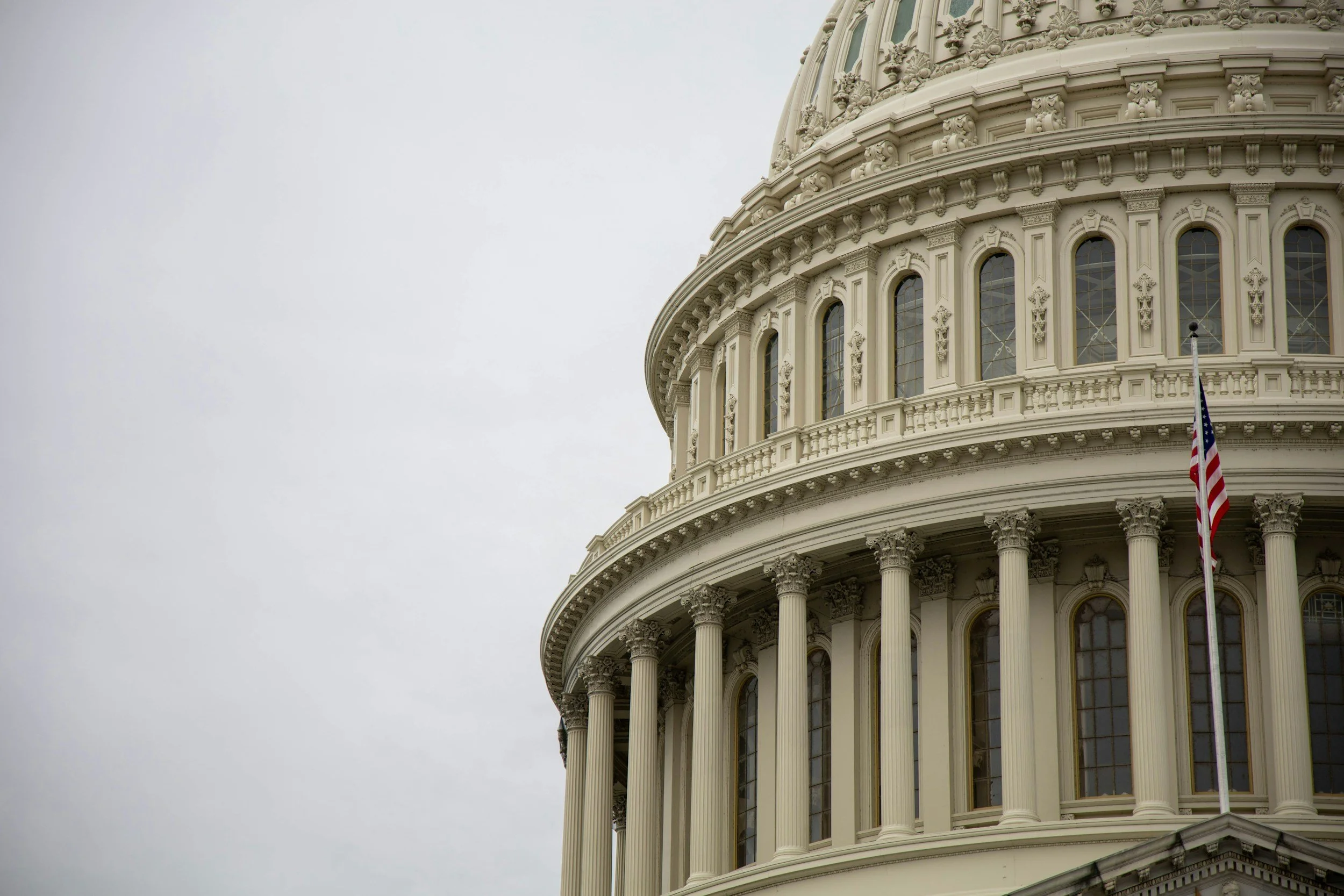New rule seeks to roll back a policy instituted under the former president that sought to limit immigration benefits for those likely to rely on government aid.
UPDATED: DHS Confirms It Is No Longer Enforcing the 2019 Public Charge Rule (Mar. 9, 2021)
In a statement posted to the USCIS website on Wednesday, DHS writes:
On March 9, 2021, the U.S. Court of Appeals for the Seventh Circuit lifted its stay of the U.S. District Court for the Northern District of Illinois’ Nov. 2, 2020, decision vacating the Public Charge Final Rule nationwide. USCIS immediately stopped applying the Public Charge Final Rule to all pending applications and petitions that would have been subject to the rule. In turn, USCIS is applying the 1999 Interim Field Guidance, which was in place before the Public Charge Final Rule was implemented, to the adjudication of any application for adjustment of status that was pending or received on or after March 9, 2021. In addition, USCIS is adjudicating any application or petition for extension of nonimmigrant stay or change of nonimmigrant status pending or received on or after March 9, 2021, consistent with regulations in place before the Public Charge Rule was implemented; in other words, USCIS is not applying the “public benefits condition.”
* * *
The Supreme Court on Tuesday dismissed the petition for certiorari in DHS, et al. v. State of New York, et al. based on a joint stipulation to dismiss filed by the parties, in the case challenging a controversial Trump-era regulation that makes it more difficult for noncitizens applying for immigration benefits if they have used certain public assistance, such as Medicaid, food stamps, and housing vouchers.
Last month, the justices agreed to take up a challenge to the so called "public charge" rule brought by The Legal Aid Society, various groups and state and local officials. But in a brief letter to the court on Tuesday, Acting Solicitor General Elizabeth Prelogar told the justices that both sides had agreed that the challenge should be dismissed.
As reported by CNN, Susan Welber, a staff attorney at the Legal Aid Society, said in an interview that the filing means that the Trump rule will "now be blocked while the Biden administration continues its review process and decides what the new will be."
In a statement released today noting that it is “neither in the public interest nor an efficient use of limited government resources” to continue to defend the Public Charge Rule, DHS announced that the Department of Justice will no longer pursue appellate review of judicial decisions invalidating or enjoining its enforcement. Per DHS, “Once the previously entered judicial invalidation of the 2019 Rule becomes final, the 1999 interim field guidance on the public charge inadmissibility provision (i.e., the policy that was in place before the 2019 Rule) will apply.”
Accordingly, the government has moved to dismiss the appeals pending before the circuit courts of appeals as well, including Cook County v. Wolf, pending in the Seventh Circuit Court of Appeals. Today, the Seventh Circuit issued its mandate in the Cook County case, meaning the decisions of the district court permanently vacating the rule will become the law of the land in the absence of further developments.
We are waiting on further guidance from USCIS on implementation of these expected orders and will provide additional updates as they are released. As of this moment, Form I-944 remains in effect.
President Joe Biden had called for the immediate review of the rule in an executive order which, he said, "should consider and evaluate" the effects of the rule and recommend steps agencies should take "to clearly communicate current public charge policies and proposed changes, if any, to reduce fear and confusion among impacted communities."
District Court Issues Nationwide Injunction on Both DOS and DHS Public Charge Regulations Due to COVID-19 (July 29, 2020)
The U.S. District Court for the Southern District of New York issued an order granting plaintiffs’ motion for a preliminary injunction and temporary stay of the Department of Homeland Security’s Final Rule on Inadmissibility on Public Charge Grounds Rule (“Public Charge Rule”). The government is enjoined from enforcing, applying, implementing, or treating as effective the Rule for any period during which there is a declared national health emergency in response to the COVID-19 outbreak.
The order notes, “a nationwide injunction is both necessary to redress the harms caused by the Rule and appropriate given the strong federal interest in uniformity of the national health and immigration policies at issue here.”
The Court also issued a separate order granting plaintiffs’ motion for a preliminary injunction enjoining the application or implementation of the 2018 Foreign Affairs Manual Public Charge Revisions, Department of State Public Charge Rule, and Public Charge Proclamation.
The order notes, “a geographically limited injunction would be especially unworkable in a case such as this, where consular officers on foreign soil would have to determine how to apply different rules to different applicants.”
The injunctions remain in place until further order of the Court. The Department of Homeland Security and the Department of State are likely to appeal these orders, but the agencies also should issue guidance in the meantime regarding the filing of impacted immigration applications.
If you have questions about how these orders may impact your case with Goldblum & Pollins, contact your attorney.
Updates: Travel Restrictions Due to Coronavirus and Travel Ban+; Plus Implementation of Public Charge Rule Mid-February (Feb. 3, 2020)
Responding to the Coronavirus Situation, United States Restricts Travel From China
U.S. Health and Human Services Secretary Azar announced a ban on foreign nationals traveling from China and quarantines for U.S. citizens coming from China. The restrictions went into effect at 5:00 p.m. (EST) on Sunday, February 2.
Foreign nationals who have traveled in China within the last 14 days will be denied entry into the United States, with the exception of lawful permanent residents, immediate family members of U.S. citizens and lawful permanent residents, and certain others. Those not subject to the ban include:
U.S. lawful permanent residents;
The spouse of a U.S. citizen or lawful permanent resident;
The parent/legal guardian of a U.S. citizen or permanent resident, if the U.S. citizen or permanent resident is unmarried and under 21;
The sibling of a U.S. citizen or permanent resident, provided that both are unmarried and under 21;
A child, foster child, or ward of a U.S. citizen or permanent resident, or who is a prospective adoptee seeking to enter the United States pursuant to the IR-4 or IH-4 visa classifications;
A foreign national traveling at the invitation of the United States Government for a purpose related to containment or mitigation of the virus;
Nonimmigrant crew members;
Foreign nationals seeking entry or transiting the U.S. under an A-1, A-2, C-2, C-3, G-1, G-2, G-3, G-4, NATO-1 through NATO-4, or NATO-6 visa;
Foreign nationals whose entry would not pose a significant risk of introducing, transmitting, or spreading the virus, as determined by the Centers for Disease Control;
Foreign nationals permitted entry by the Secretary of State, the Secretary of Homeland Security, or their respective designees.
Any U.S. citizen or qualifying foreign national returning to the U.S. who has been in Hubei province in the 14 days prior to their entry will be subject to a mandatory quarantine of 14 days to ensure they have been provided proper medical care and health screening. Those subject to mandatory quarantines will be housed at U.S. military facilities.
Any U.S. citizen or qualifying foreign national returning to the U.S. who has been anywhere else in mainland China in the 14 days prior to their entry to the U.S. will undergo "proactive entry health screening at a select number of ports of entry," and up to 14 days of "monitored self-quarantine" to ensure they have not contracted the virus and do not pose a public health risk.
All flights from China to the U.S. as well as flights with passengers who have visited China will be channeled into eleven U.S. airports (see below).
Visa appointments are U.S. Consulates in China will be cancelled until further notice as of February 2, 2020. Foreign nationals with visa appointments or awaiting visa issuance from U.S. Consulates in China should check with the relevant consulate for the latest information on closures and consular operations.
Trump Administration Announces Expansion of Travel Ban to six additional countries
In a January 31, 2020, Presidential Proclamation, the Trump administration expanded its travel ban to place visa and entry restrictions on travelers from six additional countries.
What You Need to Know:
The six countries added to the existing travel ban are: Eritrea, Kyrgyzstan, Myanmar, Nigeria, Sudan, and Tanzania.
The expanded ban becomes effective at 12:01 a.m. (EST) on February 21, 2020.
The ban contains restrictions on immigrants but not on nonimmigrants, so it will not impact acquisition of nonimmigrant visas like F-1 student, J-1 exchange visitor, H-1B worker, etc., or of admission to the United States in those categories.
U.S. Supreme court authorizes dhs to implement 2019 public charge rule while litigation continues
On January 27, 2020, the U.S. Supreme Court issued an order lifting a nationwide injunction and permitting the Trump Administration to implement its 2019 Final Rule Governing Inadmissibility on Grounds of Public Charge under INA 212(a)(4) (“Public Charge Rule”) while litigation continues. DHS remains enjoined from implementing the Public Charge Rule in Illinois, where a lower federal court has imposed a state-wide injunction.
USCIS announced that it will begin implementing the Public Charge Rule on February 24, 2020.
The Public Charge Rule will apply to applications and petitions postmarked (or submitted electronically) on or after February 24, 2020. For applications and petitions that are sent by commercial courier (e.g., UPS/FedEx/DHL), the postmark date is the date reflected on the courier receipt.
USCIS has clarified that it will not consider an individual’s application for, approval to receive, or receipt of certain non-cash public benefits before February 24, 2020, when deciding whether the foreign national is likely at any time to become a public charge under the Rule.
The Public Charge Rule impacts those filing Forms I-129, I-485, I-539, I-864, and I-864EZ. These updated forms must be used beginning February 24, 2020, otherwise applications and petitions using incorrect editions of the forms will be rejected.
As a reminder, the 2019 Public Charge Rule changes how USCIS officers will adjudicate applications for admission to the United States, extension of stay, change of status, and adjustment of status:
The term “public charge” will be redefined to mean a foreign national “who receives one or more designated public benefits for more than 12 months in the aggregate within any 36-month period (such that, for instance, receipt of two benefits in one month counts as two months).”
The term “public benefit” will be expanded to include non-cash benefits such as Supplemental Nutrition Assistance Program (SNAP), most forms of Medicaid, and Section 8 Housing Assistance under the Housing Choice Voucher Program, among others.
Extension of stay or change of status applicants will be required to demonstrate that they have NOT received public benefits over the designated 12/36 month threshold since obtaining the nonimmigrant status they seek to extend or change.
Adjustment of status applicants subject to the public charge ground of inadmissibility (as determined on Form I-485) will be required to file a “Declaration of Self-Sufficiency” (Form I-944) with their adjustment of status applications to demonstrate that they are not likely to become a public charge. The applicants may also post a “public charge bond” in the amount of no less than $8,100 to help prove same.
Of course, if you or your employees have any questions about the above, contact us!
The information contained in website is provided for educational purposes only and not as part of an attorney-client relationship. It is not a substitute for legal advice.






